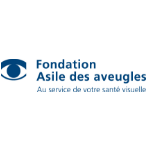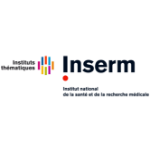retinAl phaSe contraSt imaging for Early diagnoSiS
ASSESS is developing a revolutionary system that provides quick, non-invasive imaging of patients’ retinal cells. By allowing much earlier diagnosis of retinal diseases, a leading cause of blindness, the innovation can improve treatment and increase the opportunities for prevention.
More than 28 million people in Europe are visually impaired due to retinal diseases. Current diagnosis is based on identifying large-scale alteration of the retina, something that standard ophthalmic tools usually only detect after the patient has already suffered some irreversible vision loss. ASSESS is developing a new imaging instrument to identify early cellular changes associated with the diseases and enable diagnosis several years earlier.
ASSESS is led by Ecole Polytechnique Federale de Lausanne (EPFL), a world-leading engineering university that provides deep technical and industrial knowledge. Clinical validation partners include Institut National de la Sante et de la Recherche Médicale (INSERM), a famous medical research centre located in Paris, and Fondation Asile des Aveugles, which provides access to a renowned ophthalmic hospital.
The ASSESS project’s goal is to create a start-up to sell two imaging systems: an ex-vivo microscope and an in-vivo instrument for clinical use. The project’s in-vivo imaging of the human eye uses a technique that is a radical improvement on the state of the art and promises much earlier retinal disease diagnosis, allowing improved treatment.
Much of the cellular structure of the retina is transparent and has extremely low contrast. The ASSESS solution provides an oblique illumination of the retinal layers using infrared light beams that pass through the white part of the eye. It has already been used to produce the very first human high-resolution images of several retinal cells, such as the RPE layer, obtained in vivo with a short acquisition time. The innovation shows promise for clinical use because it is potentially the only technique fast enough to image the retina with high contrast and cellular resolution without harming patients. An original paper on the technique is under review for publication in a high impact scientific journal.
The start-up will target ophthalmic research centres, hospitals and clinics, to establish the instrument as part of standard care.
Impact
This innovation will complete the panel of diagnostic tools available in ophthalmology, improving early diagnosis of retinal diseases and thus preventing vision loss – providing huge benefits for patients, their family and society. The tool will also accelerate the development of new drugs, by providing end-point criteria based on changes observed in retinal cells captured with the high-resolution images of the instrument.
Why this is an EIT Health project
This project’s innovation meets the EIT Health goal of improving healthcare. It is also in keeping with the EIT Health Focus Area of “Care Pathways”, because it promises earlier diagnosis, which will lead to better treatment, and it offers a means for better research into new treatments for retinal diseases.
Members

CLC/InnoStars: Germany
Partner classification: Hospital / University Hospital
Partner type: Associate Partner
Founded in 1843 in Lausanne (Switzerland), the Fondation Asile des aveugles manages an Eye Hospital, 2 care homes, 1 School for visual impaired children and a research center (basic research, Clinical trial Unit, living lab / rehabilitation)
Fondation Asile des aveugles
Fondation Asile des aveugles, 1000 Lausanne, Switzerland
Key Activities in Research and Developement
Biomedical engineering, Clinical research
Key Activities in Social Innovation
Healthcare provision
Key Activities in Business Creation
Testing & Validation
Key Activities in Education
Medical faculties, Healthcare professional education/training


CLC/InnoStars: France
Partner classification: Research, Tech Transfer, Clusters, Other NGOs
Founded in 1964, the French National Institute of Health and Medical Research (Inserm) is a public scientific and technological institute which operates under the joint authority of the French Ministry of Health and French Ministry of Research. As the only French public research institute to focus entirely on human health, in 2008 Inserm took on the responsibility for the strategic, scientific and operational coordination of biomedical research. This key role as coordinator comes naturally to Inserm thanks to the scientific quality of its teams and its ability to conduct translational research, from the laboratory to the patient’s bed. Inserm plays a leading role in creating the European Research Area and boosts its standing abroad through close partnerships (teams and partner laboratories abroad). Inserm is active in many areas, such as Technologies for Health, Public Health (Cohorts, Healthcare systems), Infectious and chronic disease, Neurosciences, Cancer, and Genomics.
INSERM - French National Institute of Health and Medical Research
INSERM - French National Institute of Health and Medical Research, 101 Rue de Tolbiac, 75013 Paris, France
Key Activities in Corporate Innovation
Pharma, Med Tech, ICT, Diagnostics, Imaging, Nutrition
Key Activities in Social Innovation
Healthcare provision
Key Activities in Business Creation
Incubation, Technology Transfer
Key Activities in Education
Medical faculties, Healthcare professional education/training
